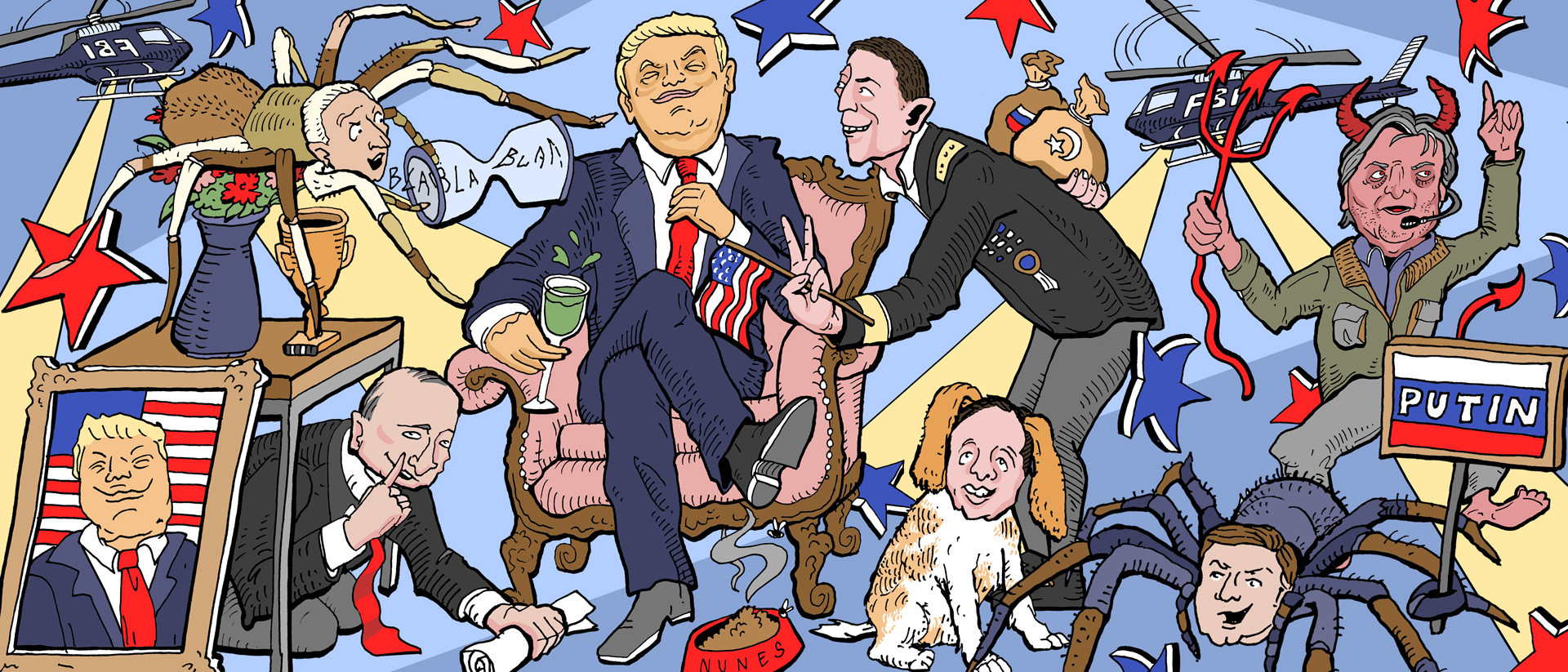At 5:25 am on Monday, March 20, Donald J. Trump logged onto Twitter and wrote: “James Clapper and others stated that there is no evidence Potus colluded with Russia. This story is FAKE NEWS and everyone knows it!”
Hours later, at a congressional hearing assembled to investigate foreign interference in the 2016 presidential election, FBI director James Comey confirmed that Trump and “individuals associated with the Trump campaign” had been under investigation for Russian collusion since late July, and that the investigation was still ongoing.
Contrary to Trump’s assertion, this statement was not “fake news,” nor was it news at all to those who had followed the Russian interference story since it broke last summer.
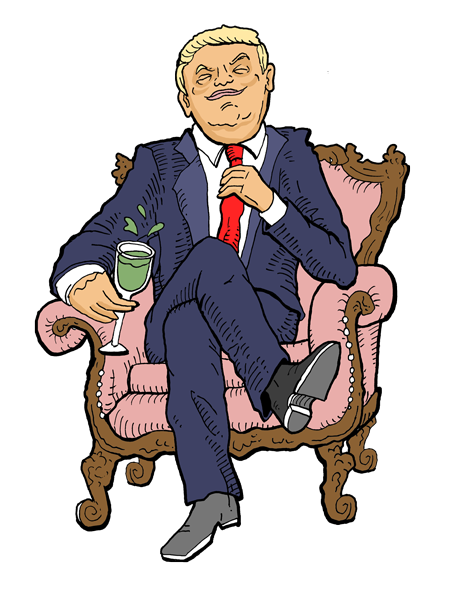
In August 2016, former Democratic Senator Harry Reid implored Comey to reveal information about Russian interference that he said “is more extensive than is widely known and may include the intent to falsify official election results,” adding that the public had the right to know before the November election. Comey responded, notoriously, not by revealing that Trump was under FBI investigation, but by implying that Hillary Clinton was, in an “October surprise” faux email scandal that was retracted only after the rumor had damaged her campaign.
Reid wrote to Comey again in late October and reemphasized the Russian threat: “It has become clear that you possess explosive information about close ties and coordination between Donald Trump, his top advisors, and the Russian government – a foreign interest openly hostile to the United States, which Trump praises at every opportunity… and yet, you continue to resist calls to inform the public of this critical information.”
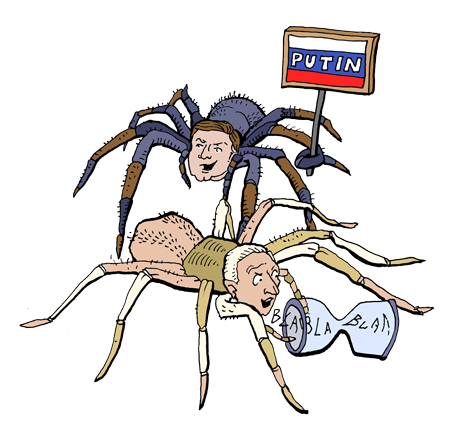
After Trump won, calls for an investigation into Russian interference began in late November, led by Republicans like John McCain and Lindsay Graham as well as Democrats like Elijah Cummings, Maxine Waters, and Adam Schiff, the latter of whom led the interrogation of Comey and NSA head Michael Rogers at the March 20 hearings. Though it has falsely been portrayed by both the Trump administration and some media outlets as a Democrat-led witchhunt, Russian interference in the election was always a bipartisan concern. Any threat to both national security and sovereignty is a bipartisan concern, and the reluctance of the Trump administration to cooperate with the investigation has long been an ominous indication of his limitations and loyalties.
Instead of watchdogs, we have lapdogs
If you were the president of the United States, sworn under oath to protect and serve the public, wouldn’t you want foreign interference in your campaign to be investigated – at the very least, to prevent the recurrence of similar actions?
Or would you try to impede the investigation, by smearing those who seek it (among them intelligence officials, legislators, and reporters) and by installing officials who either benefit from the Russian relationship (like Secretary of State Rex Tillerson), seem selected in order to obfuscate the Russian relationship (like Attorney General Jeff Sessions), or both?
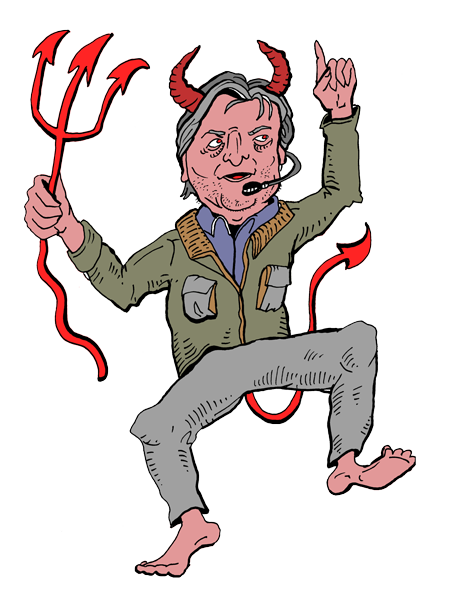
Trump chose to assemble an administration designed to cover up and aid his shady dealings with the Kremlin, leading to an administration so spectacularly corrupt and inept it has no corollary in US history.
Here’s where it currently stands:
The President is under investigation for colluding with a foreign power. He is being investigated by an oversight committee, the head of which, Republican representative Devin Nunes, has functioned less as a watchdog than a lapdog, providing information about the investigation of Trump to Trump in a breach of protocol. And this was not Nunes’ only misdeed: he was also present at a January meeting between Turkish officials and Trump’s former National Security Advisor, Michael Flynn, who in February resigned in disgrace after being revealed to be working secretly for the Turkish and Russian governments for millions of dollars.
In short, the US has employed a president suspected of treason, an oversight committee head who refuses to do oversight, and a national security advisor who undermined US national security.
The Trump clan and the Russian spy recruiter
Unfortunately, that’s only the beginning. There is also attorney general Jeff Sessions, who has had to recuse himself from the Russia interference investigation because he is implicated due to multiple meetings with Russian ambassador Sergei Kislyak during the campaign. (Sessions is not alone; Kislyak, rumored to moonlight as a spy recruiter, also met with Flynn, Trump’s son in law Jared Kushner, and Trump, though all have mysteriously foggy memories of these encounters.)
Then there’s Secretary of State Rex Tillerson, recipient of an “Order of Friendship” medal from Vladimir Putin, who does not seem to know why he is even in office, admitting this week, “I didn’t want this job …my wife told me to do this.” Unfortunately, Tillerson came to that revelation only after inflaming military tensions with North Korea.
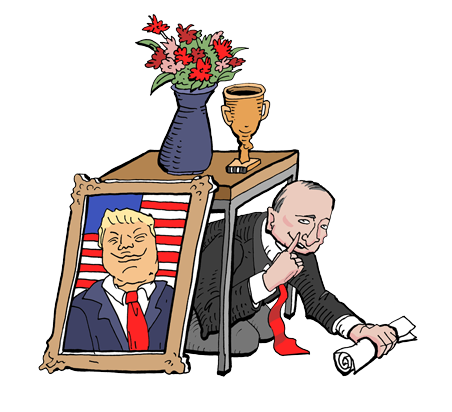
On top of that, the Trump administration contains a burgeoning and possibly illegal nepotistic dynasty (Jared and Ivanka, currently getting security clearances and White House office space despite no experience in government), multiple Nazis (both confirmed, like advisor Seb Gorka, and suspected, like white supremacist Stephen Miller), and an admirer of Satan who seeks to destroy the government from within (that would be Trump’s closest advisor, Steve Bannon.)
Putting aside the White House’s nepotism, Nazis, and Satan aficionados – there’s a sentence I never thought I’d have to write – let’s return to the men who got the US in this situation to begin with: Trump’s campaign team members Paul Manafort, Roger Stone, and Carter Page, who are all, along with Flynn, under FBI investigation. Shortly after the first round of hearings, all three have offered to testify while Flynn remains silent, leading some to suspect that Flynn has already turned and is ratting the rest out in return for a reduced punishment.
The scandal manages to move both very slow and very fast
It is possible that by the time you read this, one of these individuals will have testified, been arrested, or met the fate of the numerous Russians also tangentially implicated in this scandal, eight of whom have died since the election. It is also possible that no meaningful progress in the investigation will have been made, as has been the case for the majority of the past year. The Russian interference scandal manages to move both extremely slowly and extremely fast, with each abrupt “twist” being more of a straightening out of what seemed obvious but was heretofore unproven.
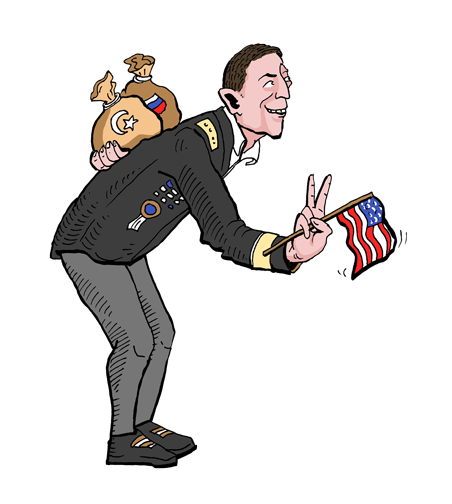
For example, it was not surprising to learn last week that Manafort, who has built a career of propping up dictators around the world and who has long had ties to Russian oligarchs, was revealed to have been paid ten million dollars a year by oligarch Oleg Deripaska to promote Putin’s anti-democratic initiatives. (Deripaska also sued Manafort in a Cayman Islands court in what seems to be further evidence of a money-laundering scheme; that this detail was forgotten only shows the sheer volume of scandal associated with a man whose own daughters claim is paid in “blood money”. )
It was also not surprising that Roger Stone – who worked with Manafort in the 1980s, when both men were introduced to Trump by mutual friend Roy Cohn, a ruthless lawyer and political operative best known for his role in the McCarthy hearings – was also under investigation, since he freely bragged of his connection to Wikileaks, to whom hacked emails were allegedly passed.
What is surprising is that something may finally be done about it, after months of deferments and denials. After months of playing down the scandal – the New York Times, a few days before the election, even admitted they had blown the story of the year – leaks and new investigative reporting are giving citizens the information they should have had before the election, much to the Trump administration’s dismay.
Trump’s position is one of unparalleled power and unrivaled weak spots
Lying with a flagrancy typical of autocrats, Trump has until now continued his lifelong streak of shaking down vulnerable institutions for personal profit while counting on a team of backers to bail him out. Unfortunately for Trump, that team is under investigation as well, and as president, Trump is now in a unique position – unparalleled power in one regard; unparalleled public scrutiny in another.
Manafort and Stone, like Trump, are lifelong manipulators of legal and political systems, spinning webs of lies and money that have elevated them – until now – above repercussions. The assorted miscreants that abet the Russian controversy range from these seasoned operatives, to panicked novices like Nunes, to befuddled participants like Tillerson.
What they all have in common is a philosophy that at the very least, puts party before country, but at heart puts everything before country – money, power, and fear of recriminations.
What they all have in common is a philosophy that puts everything before country – money, power, and fear of recriminations
Much as Americans have rediscovered their rights as they lose them, resulting in renewed civic engagement to retain their remaining liberties, there has been a renewed demand for accountability of public officials. The Trump Russia scandal differs from previous corruption scandals – like Watergate and the fabricated pretext for the Iraq War – in that which country our leaders truly serve has never been a guiding concern.
That we genuinely do not know with what nation Trump’s greatest loyalties lie – and if it is indeed with Russia, whether those loyalties were forged through debt, greed, politics, or all of the above – is a new and disturbing question, one that is difficult for many Americans to process.
But finally the investigation is moving forward, with widespread public support. Unlike months ago, when claims that there even was a Russian interference scandal were met with some skepticism, only the most hardcore Putin or Trump disciple now insists that there is no unusual connection between the Trump administration and the Kremlin. It is the job of US officials to determine the exact nature of that connection – preferably through an investigation conducted by an independent, bipartisan commission.
Given the scale of the scandal, a full inquiry will not be easy
The danger, of course, is that this investigation can be challenged by the Trump administration itself, who can delay it, deny it, or put it under the jurisdiction of officials who will aid them, as Nunes has, and as Sessions nearly did before he recused himself. If not given proper oversight, Trump – who has thus far abused executive power, often getting shot down by judges for unconstitutional initiatives – will be in a position akin to a suspected criminal able to select his own judge or delay his own trial.
It is a common tactic of authoritarian leaders facing corruption scandals to attempt to distract the public by engaging in dramatic domestic policy changes or acts of war. Trump has already attempted the former (for reasons beyond merely diverting attention away from Russia) and flirted with the latter in his aggressive rhetoric toward North Korea, China, and in military actions in Syria, Iraq, and Yemen.
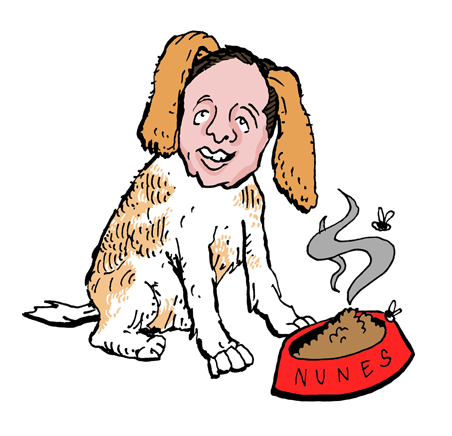
Given the erratic behavior of not only Trump but members of his administration – and the sheer number of administrative officials who appear to be implicated – it will be difficult to ensure a thorough inquiry. But that is precisely what’s needed, and as quickly and publicly as possible. That the president, ostensibly the protector of our national sovereignty, desperately wants this inquiry ended speaks volumes as to why it must proceed.
More from De Correspondent:

 Our kids may never get the chance to know America
This would be a dark chapter in US history even if Donald Trump had lost the election. But thanks to the incoming president, American democracy is in an accelerated state of decay. Is there anything we can do?
Our kids may never get the chance to know America
This would be a dark chapter in US history even if Donald Trump had lost the election. But thanks to the incoming president, American democracy is in an accelerated state of decay. Is there anything we can do?
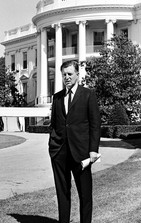
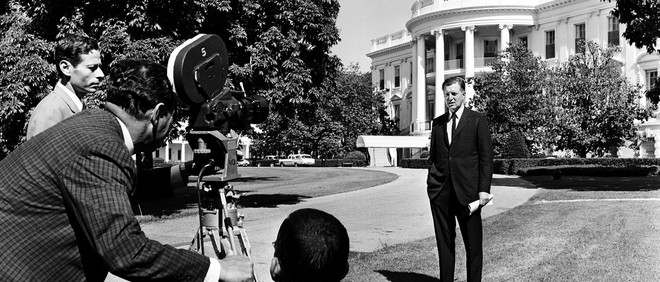 This is how we can fight Donald Trump’s attack on democracy
The news provokes outrage every day, but it rarely inspires sustained resistance. Now that Donald Trump has launched a frontal assault on democracy, the press needs to fundamentally change tack. Journalists have to beat historians to the punch and write history – before it repeats itself.
This is how we can fight Donald Trump’s attack on democracy
The news provokes outrage every day, but it rarely inspires sustained resistance. Now that Donald Trump has launched a frontal assault on democracy, the press needs to fundamentally change tack. Journalists have to beat historians to the punch and write history – before it repeats itself.



